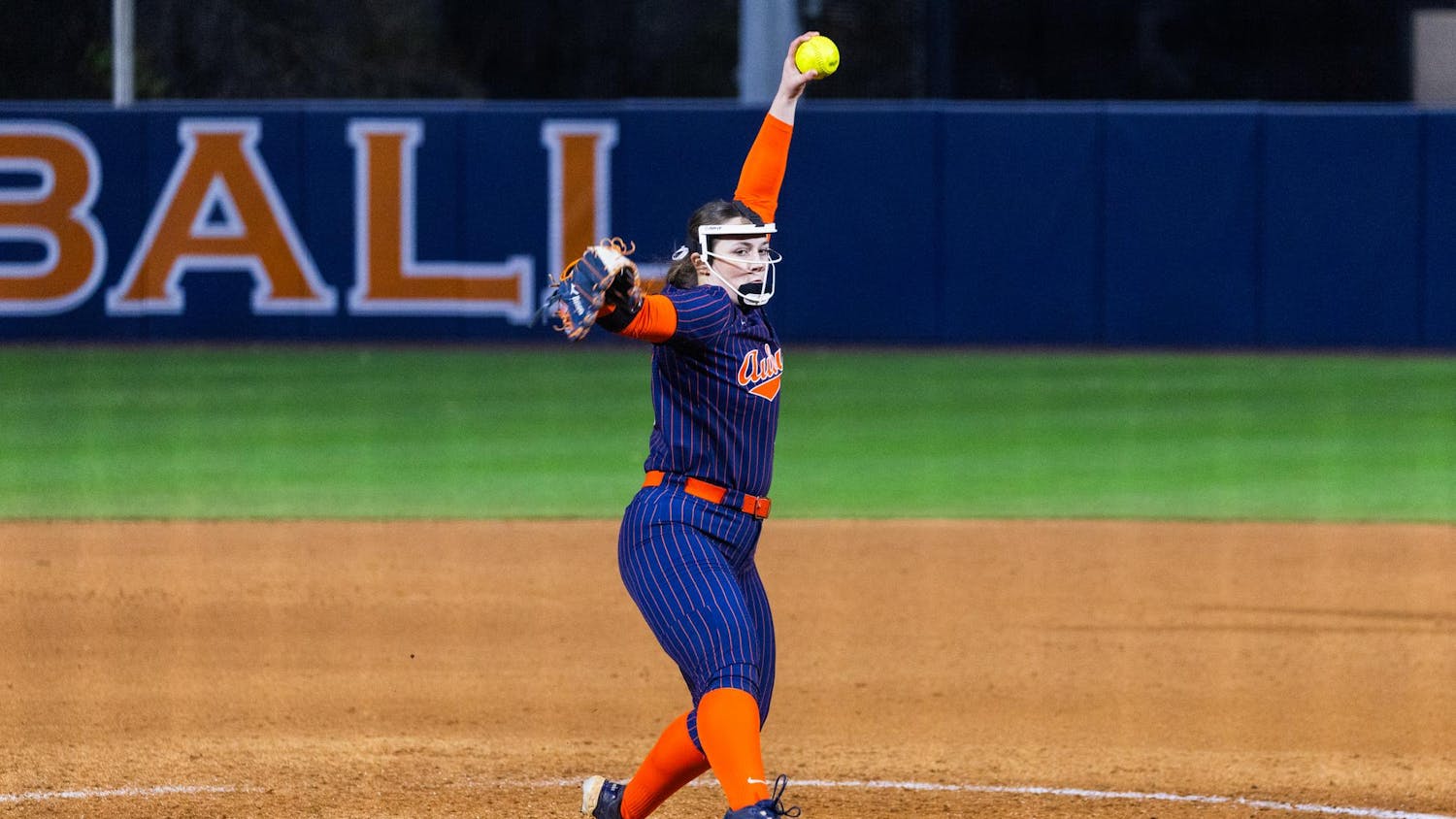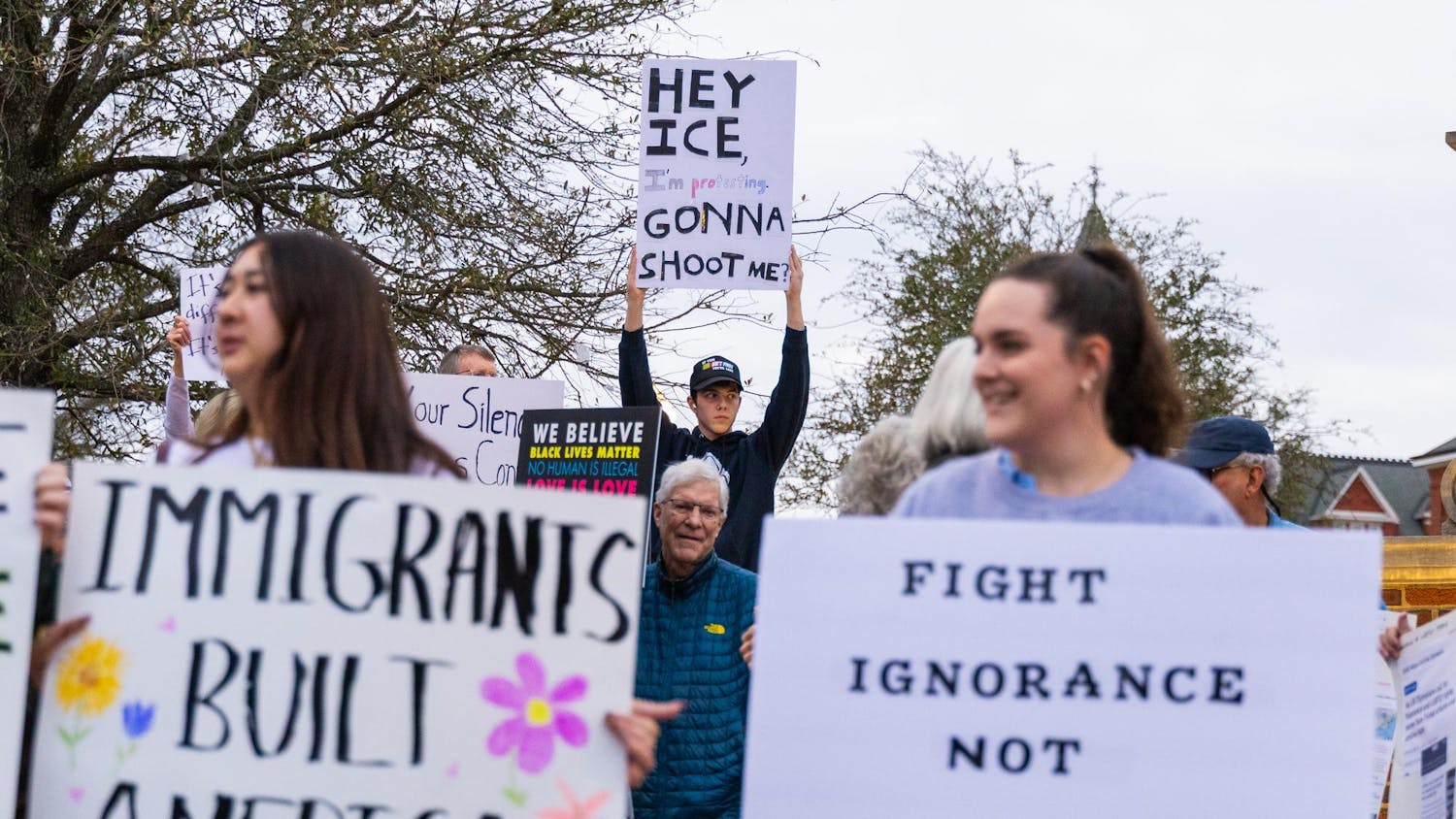Created in the winter months of 2016, AU-Bees, a host of numerous bee labs, began as a way for professor Geoffrey Williams to monitor bee health in the City of Auburn. Five years later, it has blossomed into a community affair.
“We focus on insect pollinator health,” Williams, an assistant professor in the entomology and plant pathology department at the University, said. “Most of our work is regarding bees, and quite a bit of that work with bees is dealing with honeybees. But we're also working with other native species … or solitary species that are living in these conspicuous white boxes that you may see around campus.”
The labs started producing honey in 2018, two years after its founding. Williams said when working with honeybees, “it takes some time to build up your colonies.” Now, AU-Bees will be hosting its fifth biannual honey sale online for the 2021 school year.
“The honey sale is a really amazing fundraiser for us,” Williams said. “We invest that [money] back into the lab to hire undergraduate students [and] to buy materials and supplies that we may need."
Williams said the lab harvests the honey twice a year, once in May and again in early July. They usually sell it once to twice a year, he said.
Today, honey from bee lab colonies within seven miles of Auburn’s campus is harvested and bottled for consumption by local personnel. July's batch is available for purchase online at AU-Bees' website until Sept. 6. In-person pickup is available from 11 a.m. to 1 p.m. from Sept. 8-10 at the Agricultural Heritage Park Pavilion Parking Lot on South Donahue Drive.
“It's always a bit more expensive, but you know that money is being used for [a] good purpose in the community rather than buying honey that's 50% the cost [but] who knows where it's coming from,” Williams said. “[It] could be ultra-filtered, so it doesn't have these little pollen grains in it and other things that are good sources of protein and vitamins. So, I would definitely be supportive of the local beekeeper, or … us, the local bee lab.”
Upon picking up the honey, customers can scan the QR code located on the back of the bottle to learn about the nutrition facts, moisture content, granulation and the personnel who worked at that bee yard to extract and bottle the honey. The QR code also provides information on which bee lab the honey was harvested from.
In addition, AU-Bees sells yearly T-shirts, which are available on its website. The colors rotate every year based on the color that beekeepers are using to mark their queen bee to keep track of her age. This year, the color is white.
“I’ve started to compile quite a wardrobe of alternating T-shirts,” Williams said.
Auburn University’s “For the Bees” club, which provides “Beeducation” and volunteer work, is another way for students to get involved. Additionally, at the end of September, the College of Agriculture will put on its 42nd annual Ag Roundup, which highlights the important work the college is doing, including monitoring bee health.
“I never dreamed in my undergrad that I would be working with an insect right now,” Williams said. “I was initially looking for some kind of … parasite on some big fuzzy moose or tapeworms in grizzly bears, or something really cool like that. But again, they were few and far between, and there was a lot of interest in bees, mainly because of their economic importance. So … here I am.”
Those seeking more information about AU-Bees may visit its website, follow the AU-Bees on Facebook or follow the group's Instagram page.
Do you like this story? The Plainsman doesn't accept money from tuition or student fees, and we don't charge a subscription fee. But you can donate to support The Plainsman.





